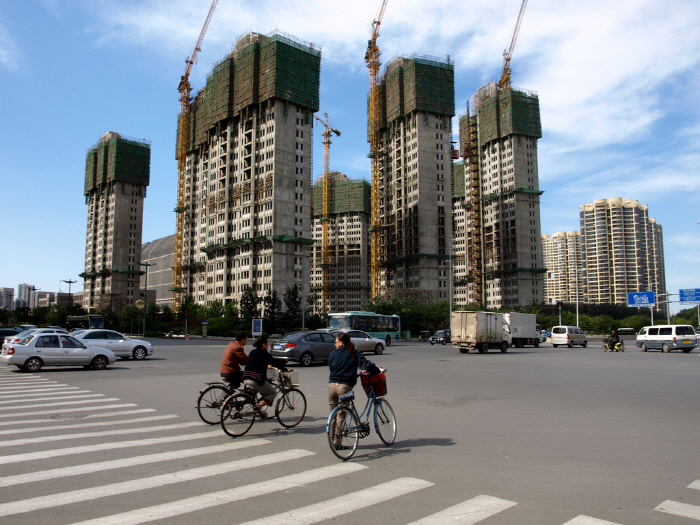The NPC is expected to keep the supply-side structural reforms topic as its main topic on the macro policy agenda. Their key impact on financial markets is expected to be through the execution and implementation of five priorities: Unwind overcapacity, Destocking, Deleveraging, Lower corporate operating costs and Expand effective supply.
These seem to be more of "structural adjustments" rather than "structural reforms". For both long-term reforms and short-term adjustments destocking and capacity reduction/relocation will be a focus. Even if the adjustments can stimulate China's potential growth in the long run, they might pose strong headwinds to growth in short-term.
The government is likely to reiterate its intentions and to cut capacity in many energy and manufacturing sectors such as cement, coal and iron and steel. These will be helped by social and credit policies to accelerate the exit of uncompetitive companies while controlling social costs of joblessness. However, it is expected to be a strong drag on growth in 2016-2017, as seen in record-low fixed asset investment growth.
Also, additional initiatives are expected to help destocking, particularly in the housing market, and to boost effective supply. Many new and existing measures will tackle housing market inventory. Across-the-board deleveraging is unlikely to take place in the near term. Public and household sectors have limited leverage in contrary to the over-leveraged corporate sector.
"That said, credit expansion to households and government could still be supported by policy measures, while corporate deleveraging could be slow based on international experience", says Barclays.
Supply-side structural reforms likely to pose headwinds to China’s growth in short-term

Thursday, March 3, 2016 10:30 AM UTC
Editor's Picks
- Market Data
Most Popular



 New York Legalizes Medical Aid in Dying for Terminally Ill Patients
New York Legalizes Medical Aid in Dying for Terminally Ill Patients  Missouri Judge Dismisses Lawsuit Challenging Starbucks’ Diversity and Inclusion Policies
Missouri Judge Dismisses Lawsuit Challenging Starbucks’ Diversity and Inclusion Policies  Federal Judge Restores Funding for Gateway Rail Tunnel Project
Federal Judge Restores Funding for Gateway Rail Tunnel Project  Nighttime Shelling Causes Serious Damage in Russia’s Belgorod Region Near Ukraine Border
Nighttime Shelling Causes Serious Damage in Russia’s Belgorod Region Near Ukraine Border  Russian Stocks End Mixed as MOEX Index Closes Flat Amid Commodity Strength
Russian Stocks End Mixed as MOEX Index Closes Flat Amid Commodity Strength  TrumpRx Website Launches to Offer Discounted Prescription Drugs for Cash-Paying Americans
TrumpRx Website Launches to Offer Discounted Prescription Drugs for Cash-Paying Americans  U.S.-India Trade Framework Signals Major Shift in Tariffs, Energy, and Supply Chains
U.S.-India Trade Framework Signals Major Shift in Tariffs, Energy, and Supply Chains  Fed Governor Lisa Cook Warns Inflation Risks Remain as Rates Stay Steady
Fed Governor Lisa Cook Warns Inflation Risks Remain as Rates Stay Steady  Thailand Inflation Remains Negative for 10th Straight Month in January
Thailand Inflation Remains Negative for 10th Straight Month in January  Bank of Japan Signals Readiness for Near-Term Rate Hike as Inflation Nears Target
Bank of Japan Signals Readiness for Near-Term Rate Hike as Inflation Nears Target  Trump Backs Nexstar–Tegna Merger Amid Shifting U.S. Media Landscape
Trump Backs Nexstar–Tegna Merger Amid Shifting U.S. Media Landscape  Trump Lifts 25% Tariff on Indian Goods in Strategic U.S.–India Trade and Energy Deal
Trump Lifts 25% Tariff on Indian Goods in Strategic U.S.–India Trade and Energy Deal  TrumpRx.gov Highlights GLP-1 Drug Discounts but Offers Limited Savings for Most Americans
TrumpRx.gov Highlights GLP-1 Drug Discounts but Offers Limited Savings for Most Americans 































